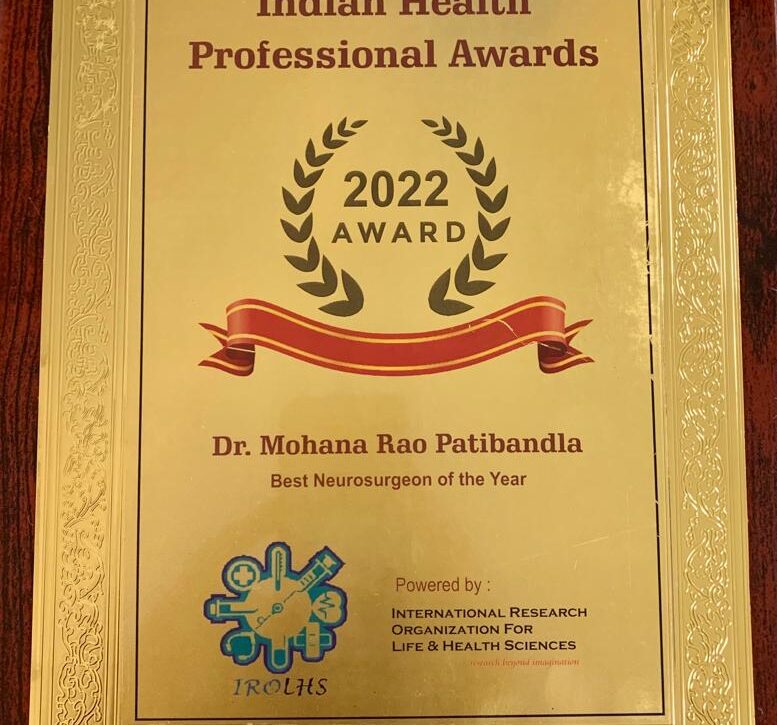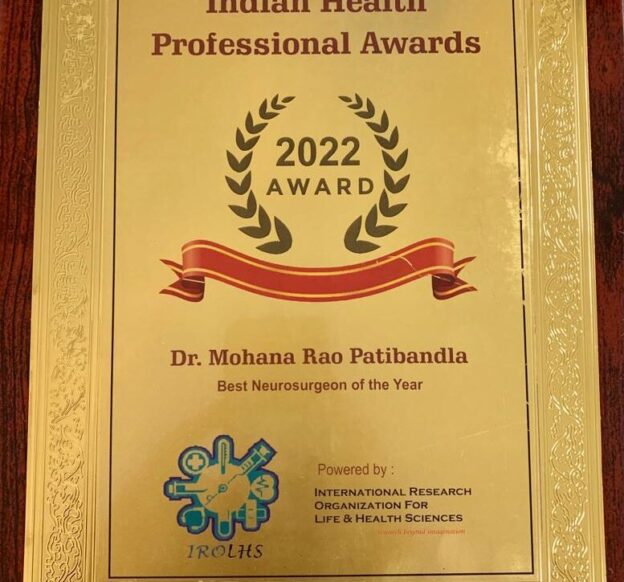How to Tell if a Fall is Serious?
Tumbling off a ladder, stumbling over a rock or fallen tree while hiking, and a slew of other activities send thousands of individuals to the emergency room each year.
Bruises and soreness can occur anywhere after a fall. However, the back and the head are two of the most troublesome injury sites, says Dr. Mohana Rao, a highly qualified and experienced neurosurgeon in Guntur, Andhra Pradesh. He has immense expertise and is renowned for performing advanced brain surgeries and minimally invasive spine surgery in Andhra Pradesh.
Now, let’s discuss the initial steps one should take after suffering from back and head injuries.
Injury to the back:
Take ibuprofen and apply ice to a lower back strain in general. If the discomfort persists after a few days, see your doctor. If you have pain in the centre of your back, or if pain or tingling travels down your arms or legs, you should visit a doctor right away. Even if you have discomfort in your arms and legs, it will most likely go away on its own. Dr. Rao advises that you see your doctor the next day or go to urgent care to be safe.
Most discomfort goes away in a few days, except for a fractured bone. Back and neck bones can fracture in various ways, some of which are harmful and others not.
Dr. Rao adds that most fracture pain is severe and lasts for several days, whereas muscle injury heals typically with time. So, if your neck or back pain worsens rather than improves in the days following a fall, contact your physician.
Head injury:
When a fall causes a head injury, keep a watchful eye on the symptoms for several hours. Seek immediate medical care if a fall results in:
- loss of consciousness
- weakness
- numbness
- confusion or vision disturbances
Concussion treatment usually consists of physical and mental rest, although specialist rehabilitation may be required to avoid long-term difficulties, particularly cognitive skills. At Dr. Rao’s Hospital, a well-known neurology hospital in Guntur, a team of competent neurosurgeons can diagnose and treat any head trauma or suspected injuries.
With Rehabilitation, You Can Rebuild
According to Dr. Mohana Rao, a seasoned neurosurgeon in Andhra Pradesh, brain-injured individuals often require rehabilitation to return to normal activities following medical treatment.
Dr. Rao believes that rehabilitation is critical for people with Huntington’s disease. It might be tough to do activities we take for granted when someone suffers brain damage.
Rehab is divided into three categories:
- Physical — maintaining balance and walking safely.
- Speech — enhancing cognition and ensuring patients are swallowing appropriately.
- Occupational — performing daily routines, such as dressing and grooming, and proceeding to more complicated tasks.
- At Dr. Rao’s neurology hospital in Andhra Pradesh, a team of proficient neurosurgeons may design specialized rehabilitation programs as part of its individualized treatment strategies.
Now, let’s learn,
How you can avoid falling?
Falls may frequently be avoided by fall-proofing your home and taking extra precautions when climbing up and down. Consider the following recommendations:

Six fall-prevention tips
- Install a railing on your home’s stairs if you don’t already have one. Instead of using a thick fence that you can’t grip securely, make sure you can easily grab the rail. Even on small stairwells, use a handrail wherever practical.
- Make sure your steps are carpeted or have a non-slippery surface.
- Non-skid treads can be installed on both wooden and metal stairs.
- Make sure your steps are well-lit at night and visible during the day. Clear the stairwell of any shoes or other items that could cause a hazard.
- Take your time ascending and descending the stairwell. If you wear bifocals, be especially cautious because they can alter your depth perception.
- Carry items up and down the stairs with one hand only.

A stairwell fall can be terrifying and unpleasant. A doctor should evaluate most falls to see a higher risk of future falls in older people.
If you are unsure whether you should call a doctor after a fall, whether you are a child or an older adult, seek an evaluation.
It’s best to see a doctor if new symptoms appear hours or days after a fall to rule out an injury. Severe injuries aren’t always apparent right away.


